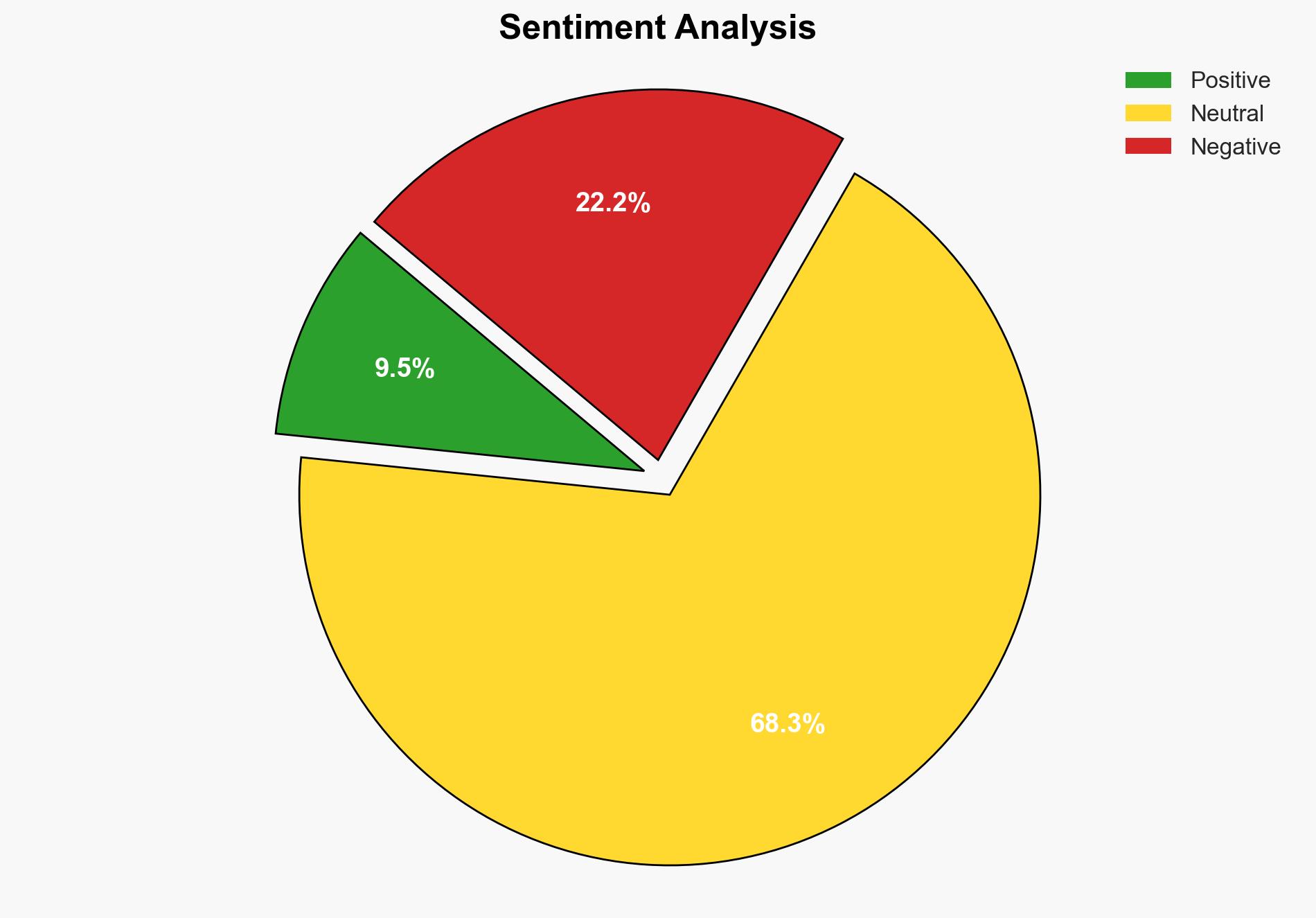Israel strikes Lebanon in response to cross-border rocket fire – CNA
Published on: 2025-03-22
Intelligence Report: Israel strikes Lebanon in response to cross-border rocket fire – CNA
1. BLUF (Bottom Line Up Front)
Recent hostilities have escalated between Israel and Lebanon following cross-border rocket fire, leading to Israeli airstrikes in southern Lebanon. The situation threatens the fragile truce established after a prolonged conflict. Immediate attention is required to prevent further destabilization in the region, with potential implications for broader Middle Eastern geopolitics.
2. Detailed Analysis
The following structured analytic techniques have been applied for this analysis:
General Analysis
The incident began with rocket fire from Lebanon into Israeli territory, which Israel intercepted. In retaliation, Israel conducted airstrikes targeting areas in southern Lebanon, reportedly resulting in casualties. The Lebanese group Hezbollah has denied involvement in the rocket attacks, maintaining its commitment to the ceasefire. However, the situation remains volatile, with Israel holding the Lebanese government accountable for activities within its borders. The United Nations has expressed concern over the potential escalation of violence.
3. Implications and Strategic Risks
The escalation poses significant risks to regional stability, potentially drawing in other actors and exacerbating existing tensions. The fragile ceasefire between Israel and Hezbollah is at risk, which could lead to renewed hostilities. There are also implications for international relations, particularly involving countries with vested interests in the region, such as Iran and the United States. Economic impacts could arise from disruptions to trade routes and increased military expenditures.
4. Recommendations and Outlook
Recommendations:
- Engage in diplomatic efforts to reaffirm the ceasefire and prevent further military actions.
- Enhance intelligence-sharing mechanisms to accurately attribute responsibility for cross-border attacks.
- Consider deploying peacekeeping forces to monitor the border and deter further aggression.
Outlook:
In the best-case scenario, diplomatic interventions succeed in de-escalating tensions, leading to a reinforced ceasefire. The worst-case scenario involves a full-scale military conflict, drawing in regional powers and destabilizing the Middle East further. The most likely outcome is a continuation of sporadic skirmishes, with intermittent diplomatic efforts to manage the situation.
5. Key Individuals and Entities
The report mentions significant individuals and organizations, including Ophir Falk, Benjamin Netanyahu, Joseph Aoun, and Nawaf Salam. Key entities include the Israeli military, Hezbollah, and the United Nations peacekeeping force in Lebanon.





